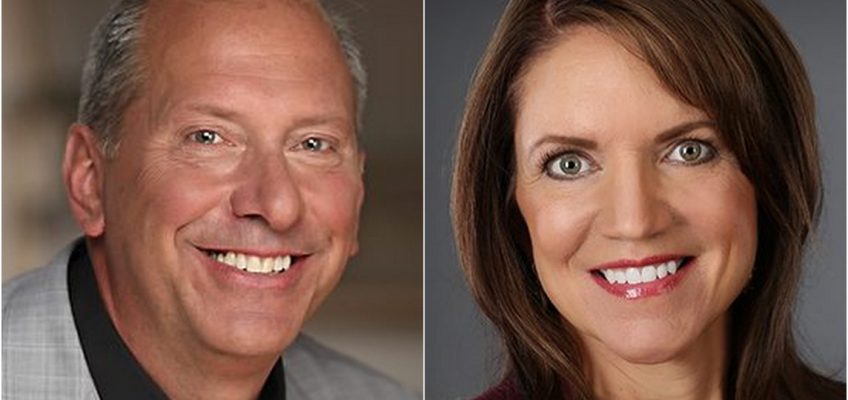The first job Chris Finch accepted out of college was that of professional basketball player – for the Washington Generals. Yes, the current Timberwolves head coach who hates losing with a passion signed up to go lose games on a nightly basis.
His contract featured a number of six-week tours around the world where he’d make roughly $2,000 a month to play.
“I was just like, ‘Yeah, I’m going to just play basketball and see the world,’” said Finch, who’d just wrapped a Division-III basketball career in his home state of Pennsylvania.
It never came to fruition. The Globetrotters went bankrupt in 1992, the tour was canceled and Finch was out of a job.
By now, Finch’s path to the NBA is fairly well known. He coached overseas for 13 years – both professionally and at the international level – and then was hired by the Houston Rockets to coach in the G-League. Then Finch became an NBA assistant coach for 10 years before he was tabbed to be the Wolves’ head man.
But before all of that, there were numerous “almosts” and “neverminds” that led Finch to where he stands today, as one of the premier coaches in the NBA, guiding a 56-win Timberwolves team that leads the defending-champion Denver Nuggets 2-1 in the Western Conference semifinals ahead of Sunday’s Game 4 at Target Center.
“So, at the last moment, I’ve got to get a real job,” Finch said.
Which wasn’t easy at the time for those just coming out of college. A recession was taking place, and desirable job openings were few and far between. A friend who knew somebody got Finch placed into a management training program at a local bank, where he worked while also coaching high school basketball in a rural town at the junior varsity level.
But Finch quickly realized he didn’t want to be in banking, and he latched onto a food brokerage company that negotiated shelf space for brands within stores.
Finally, two basketball opportunities presented themselves – to play for the Sheffield Sharks in the British Basketball League, or take a graduate assistant position at the University of South Florida. The latter lent itself more to a coaching career path, but Finch chose the former. It wasn’t so much because he had an insatiable appetite to continue playing as he wanted to see another part of the world. Frankly, Finch didn’t assume that opportunity would last more than a year. So even upon his arrival in England, he was considering options for his next steps.
All of his education was in politics, and the idea of running a campaign – the competitive side of that realm – intrigued him. But he never ventured to put himself in such circles.
Whenever someone would ask Finch what he planned to do, law school was his response.
Why?
“I think it’s one of those things when you’re growing up, you’re going through college and you’re like, ‘Well, I don’t want to be a doctor, so maybe I should be a lawyer,’ ” Finch said. “You’re going through the professional checklist.”
So, even before heading to England, Finch scheduled a Law School Admission Test. And then proceeded to hardly study. So while he was always a good test taker, Finch knew within the first 30 minutes of his testing time that he was toast.
“Have you seen those questions? The questions are like, ‘Marcy and Bob and Susie and Jane and Robert are sitting on a bus, and Marcie is driving, and so and so is by the door. Who’s sitting next to this?’ And now you have to rotate everybody else one seat over, and now who are the two people in the back?” he recalled. “They’re fun, but if you’re not in the right mindset, you’re not doing a good job.”
On the bright side, Finch took the test in the morning, and he had the rest of the day to enjoy his first trip to London. He noted it’s possible a few pubs were passed through.
Finch noted you cannot technically fail the LSATs. So perhaps “bombed” is a more apt term to describe his performance?
“Yeah,” he said.
He finished in the 11th percentile, as confirmed when he dug his results out of a file cabinet this week.
“I was like, ‘Oof,’ ” Finch said. “But I wasn’t expecting anything out of it.”
In retrospect, all that experience did was confirm to Finch that he didn’t want to be a lawyer. If he did, he would’ve studied. He doesn’t think there was a high enough score that would’ve led to him going to law school. None of the people he knew who took that route enjoyed it, anyway.
He performed far better on the GREs, because he prepared for those. But it was all about leaving doors open in the face of an uncertain future.
Even with the knowledge that he didn’t want to be a lawyer, he didn’t fully “shelf” that idea until he went from player to coach for Sheffield at the ripe age of 27 in 1997. At that point, he assumed coaching basketball would be his career path. But the where was still a major unknown.
Finch was doing well for himself in the British Basketball League. And yet he still was constantly searching out opportunities to return home. Most of those came in the form of Division-III college or high school gigs.
He thought he struck gold when the chance to be the varsity coach at Reading High School popped up. Finch knew that area well – Reading was less than five miles from Wilson High School, which Finch attended. The two schools were rivals.
The familiarity seemed to work in Finch’s favor. He got the job. He would coach the boys basketball team, and the school would pay for him to get his teaching certificate and pursue a masters degree to aid in his plunge into the education field.
Reading had never won a state title, but the school – with prominent basketball alums such as Donyell Marshall and Lonnie Walker IV – had a large talent pool and was invested in athletic success.
“It’s like being a Texas High School football coach,” Finch said. “I was doing it. I was excited. I was all in. I didn’t know if I wanted to really teach, but teaching was a pathway to coaching. They’re the same thing, really. What was important to me was basketball had to be important to the school. Basketball was more important to Reading HIgh School than it was to some of the colleges where I tried to get jobs.”
At that time, successful high school coaches had more opportunities to move up in the ranks, so Finch viewed the job and a potential springboard with endless possibilities. And it was his.
Until it wasn’t.
“It’s funny how it worked out,” Finch said.
Maybe funny isn’t the right word.
“Weird how it worked out,” he said.
Basketball Hall of Fame coach Pete Carril – who gained his fame by guiding Princeton for 30 years – first coached at Reading High School. Carril had a lot of family in the area, and they – nor many others – were pleased when they learned Finch was the program’s new hire.
What didn’t they like about Finch? Well, in their eyes, he was still a rival, same as he was in his high school playing days. Most of Reading’s hires were internal – or at least from the general family. Finch was not that.
“I went to the leafy suburb school. And that’s literally what it was,” Finch said. “It was a city school vs. suburb school.”
People made their displeasures known. Finch said the offer was essentially pulled at the school board meeting originally meant to confirm the hiring.
“Man, I was crushed,” Finch said. “I thought to myself, ‘Alright, well that’s not meant to be.’”
So, still aiming to move back to the States, he spent the next couple years chasing Division-III coaching jobs with little luck. Until he became a finalist at SUNY New Paltz – a New York state school that, frankly, wasn’t all that invested in athletics. But, at this point – even while thriving as Sheffield’s coach – Finch seemed desperate to move back.
“The money was so low. I mean, so low. It was like less than a quarter of what I was making (with Sheffield),” Finch said. “But I just wanted to go home and start a new path. But I was having success in England, and I remember the AD called me, it was on the eve of when they were going to make their decision, and he said, ‘There’s been a change in the salary.’”
It was lowered by a few thousand dollars.
“He said, ‘Would this affect your willingness to come if we offered you the job?’” Finch recalled.
Surely, that was the end of that pursuit.
“I was like, ‘At this point it doesn’t matter. I’m taking such a pay cut to come do this, what’s another couple grand?’” Finch said. “I said, ‘If you want me, just offer me the job and we’ll figure something out.’”
And he still didn’t get the gig. Finch said the school instead went with someone who was an assistant coach within the state system at the time.
Not getting that job caused Finch to finally ask himself an important question.
“What am I doing?” he asked. “I’m selling my soul to get these opportunities.”
Opportunities that, frankly, sounded like dead-end jobs.
“No doubt about it,” Finch said. “One thing I have learned is all these jobs, when they’re open, for the most part, they’re not great – that’s why they’re open.”
There would be no more doors left open, no more Plan Bs. He was going all on his path. He was finally planted where his feet were.
“I’m on a good path here, I need to focus on my path here, maximize my opportunities in Europe and forget about trying to go home. That’ll be what it’ll be,” Finch said. “And that’s really when I kind of made the mindset switch to do that.”
He hired an agent, who helped him get a job in Germany. From there, he went to Belgium, where he experienced more success. He coached Great Britain in the Olympics.
And, eventually, he was in the NBA.
As it turned out, he was as fortunate for the jobs he didn’t get as the ones he did. And while not getting the SUNY New Paltz job was the true turning point for Finch, Reading is still the one he thinks about most often.
“The one that would’ve been life changing is the high school opportunity. You’re basically a high school coach, going to move back to your hometown. You settle in there. You could predict your earnings in 25 years. Life becomes extremely mapped out for you,” Finch said. “That one I always think about. I was really devastated to have that one pulled from me at the last second.”
In retrospect, he probably owes those outraged locals a “Thank you.”
“Yeah, I do now. I should now,” Finch said. “I’m sorry that you couldn’t get over our rivalry.”
Timberwolves fans are forever grateful.
Denver cruises in Game 3 to hand Timberwolves first postseason defeat
Dane Mizutani: You knew the defending NBA champions weren’t going to go down easy
Meet Catrell Maclin, the Timberwolves’ superfan who keeps popping up on TV
Vikings quarterback J.J. McCarthy has been preparing for this moment
Timberwolves assistant coach Micah Nori details friendship with Nuggets star center Nikola Jokic




